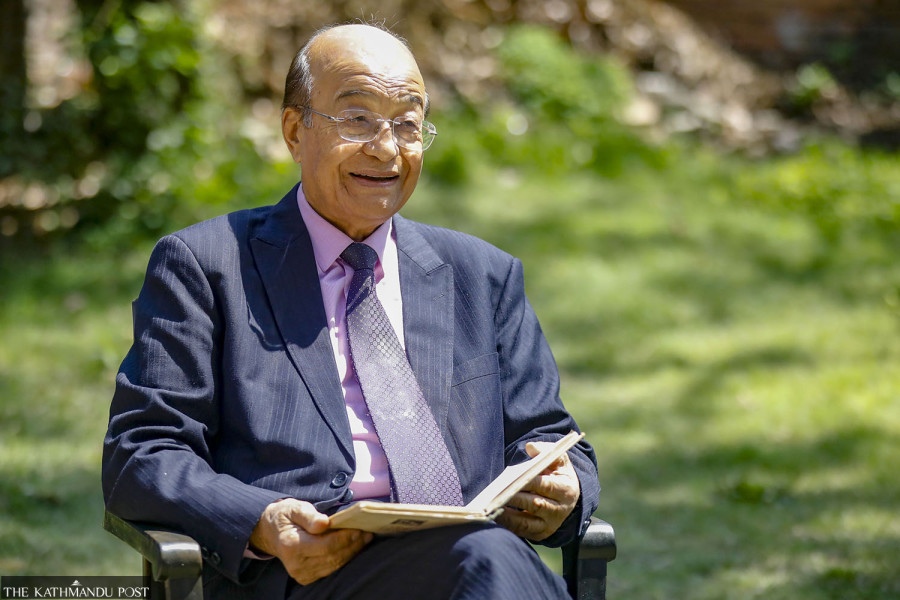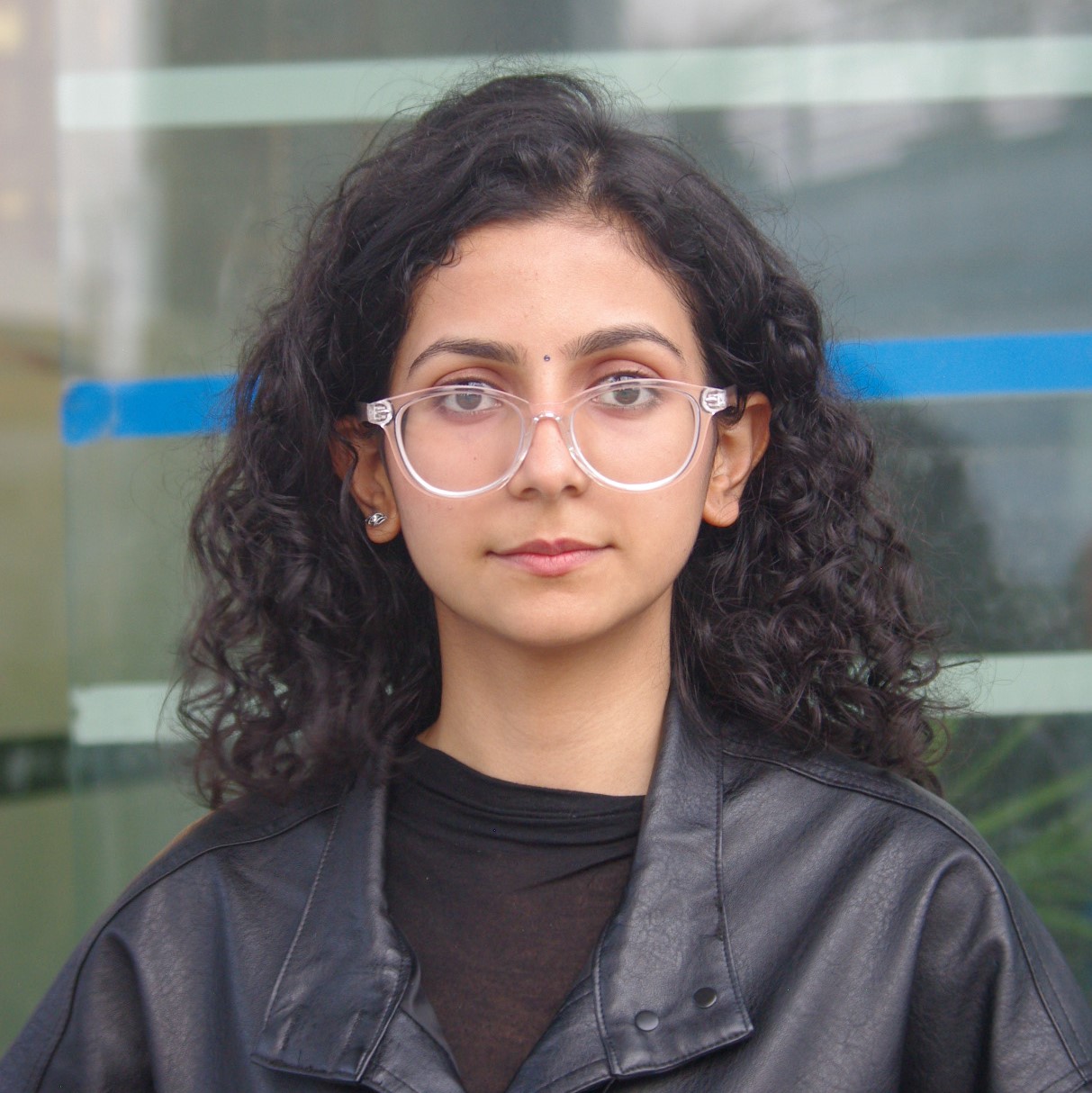Books
Let us document folk tales to preserve our identity
Writer and folklorist Tulasi Diwas discusses the importance of folk traditions and why writers should change their writing style frequently.
Anweiti Upadhyay
Few individuals have had the impact Tulasi Diwas has in terms of collecting Nepali folk tales and researching the folk culture of numerous ethnicities across the country. Writer, poet, folklorist and cultural expert Diwas’ work has been translated into over 25 languages. He is also the recipient of Yug Kavi Siddhicharan Award in 2018 and the Bisista Sahitya Siromani honour at the 2013 International Poetry Festival in India.
In this interview with The Post’s Anweiti Upadhyay, Diwas discusses the importance of folk traditions and why writers should change their writing style and topics all the time.
When did you start reading?
I started reading books outside of my coursebooks when I was in grade 8. I remember picking up tons of books in Nepali, English and Hindi growing up and haven’t stopped since.
I also started collecting books as soon as I began reading. So, over the years, I have accumulated quite a collection of books for my personal library.
My father didn’t get to study (formally) as much as he wanted to. That doesn’t mean he couldn’t read or write—he did that quite well. In fact, he was a government officer. But I was more influenced by my uncles who were well-educated and very involved in cultural activities, including music, dance and writing. This is how I got interested in both reading and the many aspects of Nepali culture.
Later in life, I founded Bal Mandir in Dhankuta with some of my colleagues. I also served as the school's principal for some time, so I felt a need to know even more about the world. So, I would read a lot of books to quench my thirst for knowledge. And I’ve only felt a greater need for reading ever since.
What are you reading nowadays?
As culture and folklore are the topics I’m highly interested in, I mostly read books on them. I’m also a big lover of poetry. So, I read poetry very often too.
But nowadays, I don’t get to read as much as I once used to. Because of my work, I’ve started taking a functional approach to reading. I read up on topics I need to for the projects I’m working on.
I travel a lot for work. During my travels, I do come across books that are popular or highly acclaimed in different countries that I probably wouldn’t have come across in Nepal. I read those too. However, among these, I can only read ones that are translated into one of the three languages I understand.
Additionally, I also get to know many talented and critically acclaimed writers from all around the world while attending various conferences for work. I get gifted books during these meet-ups and I’m compelled to read the books I’ve received personally from these authors too.
What are some writers or literary works you love? Has any writer’s work influenced your own writing style?
My reading interests have always been diverse. In the past few decades, the genres and languages I read across have expanded even more—especially as I encounter a lot of writers from all across the world. So, I can’t give you just a name or two when it comes to my influences or the writers and books I love.
Another reason I’m a little hesitant to give you specific names when it comes to writers is that no two writeups by an author are the same. Just like how two siblings born to the same parents aren’t similar. And I firmly believe they shouldn’t be. We, humans, are ever-evolving. I’m not the same person I was yesterday or even an hour ago, and neither are you. So why should two things written by the same person be similar?
So you think writers should always change their writing styles?
Definitely. That is how you grow as a writer and a person. Each and every creation of a writer should be different. This could be through style, genre, subject or anything else. This happens quite naturally for many writers. I think it should apply to creative creators of all kinds, not just writers.
There is a big difference between writers of subjects like history and geography, and literary writers. The former collects data and information and puts all of that into words we can understand. They don’t have to be creative with their writing.
However, the latter has to put all of their creativity into everything they write. Their writeups are a direct reflection of their creative flair. These writers have to try out different things with their writeups all the time. They shouldn’t create what is already there. They should see what isn’t there and create that.
Do you apply this to your own writing too?
Yes, I do. This is why I don’t write every day. I space out my writing time so that I won’t repeat what I write.
Your most beloved book to date is ‘Nepali Lok Katha’ (Nepali Folk Tales). You have done a lot of research on and documented the folk culture of Nepal. Why is it important to research and document these?
Nepal is very diverse in terms of culture and tradition. And all of this diversity is a result of the varied topography that makes up our country.
It is very easy to get to know how diverse Nepal is in terms of culture, tradition, language and lifestyle. You just need to travel from the bottom of a hill to the top. You will see how the difference in topography naturally brings about changes in everything, including the food we eat, costumes we dress ourselves in, languages we speak, songs we sing, festivals we celebrate, movements we use in our dances and the perception we have of the world.
If everyone here understood how deeply our culture and lifestyle are shaped by the part of the country we live in, we would instinctively understand why it is important to research and document this. If all Nepalis understood and accepted this geographic truth, we would understand each other regardless of our diverse backgrounds.
A lot of young Nepalis know folk tales originating from other countries. However, they are not aware of Nepali folk tales. What is the reason behind this?
The main reason for this is that our folk tales haven’t been documented much. Many countries are very invested in researching, documenting, celebrating and spreading their culture. They know how important it is to preserve their own unique identity in the world. We are not doing that here.
We promote and spread foreign cultures over our own. Most institutes and colleges in Nepal teach music and dances from other cultures while paying dust to our own. I insisted a lot on having colleges like Padma Kanya Multiple Campus include folk dances and songs from different Nepali cultures including Newa, Tharu and different indigenous groups from the Far West. They were previously teaching Indian classical music and dances. Changes like these need to happen all over the country to preserve and promote our folk traditions.
I, in fact, think Nepali folklore should be taught as a subject of its own at different colleges and universities across the country. It’s a vast topic and there is a lot of study and research here. This will enable more Nepalis to get introduced to the many cultures and traditions of our nation.
Where do you think Nepali literature stands in the global literary scene?
I’ve been able to attend various literary seminars, conferences and events across the world as a literary figure from Nepal. Trust me when I say I don’t think we need to be upset about our standing in the global literary scene. The literary works published by Nepali authors aren’t in any way inferior to the works of foreign authors.
However, I do feel that if we could get more of our good literary pieces translated into other languages, then we could spread the word about the masterpieces written by Nepali writers to a bigger audience.




 22.64°C Kathmandu
22.64°C Kathmandu














